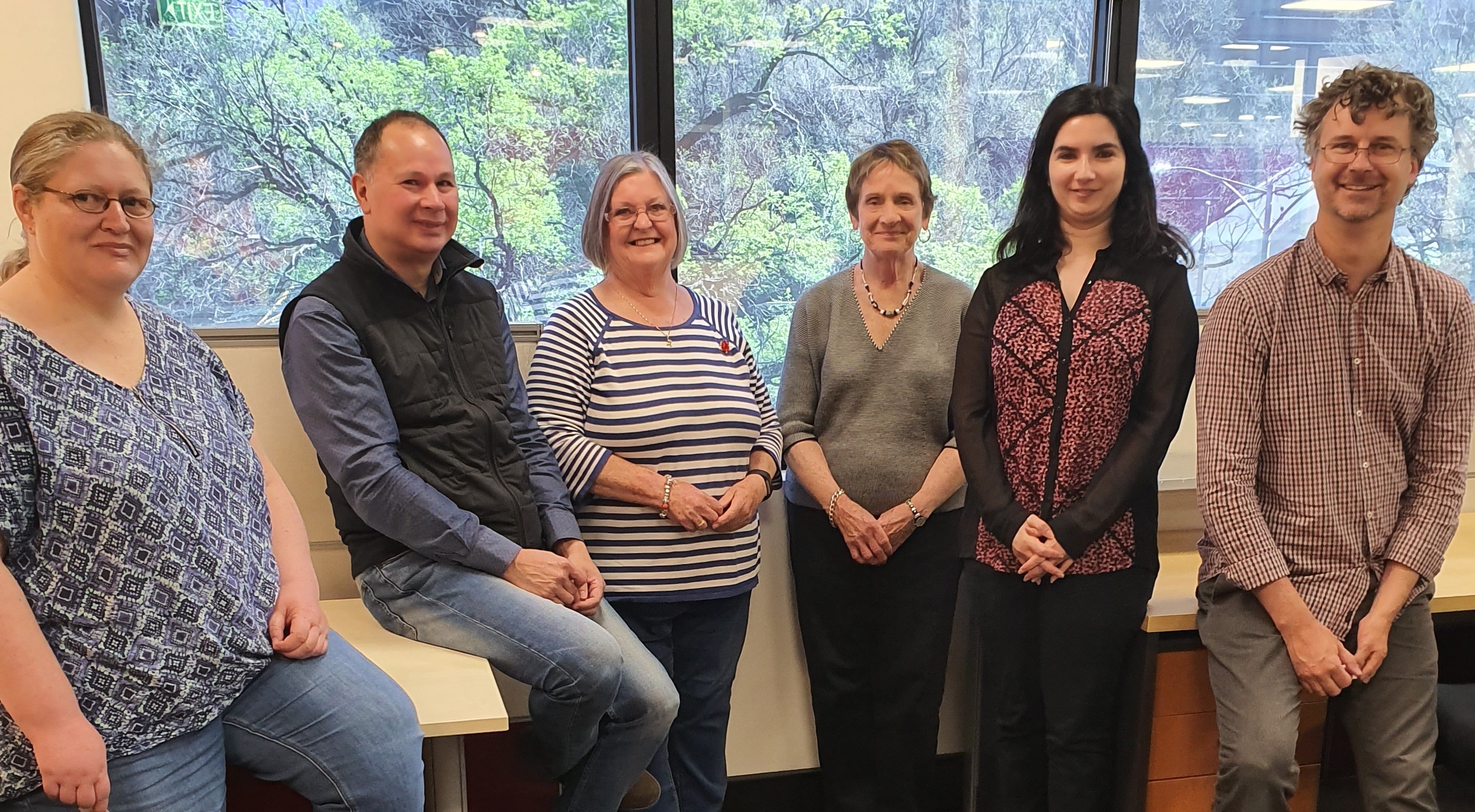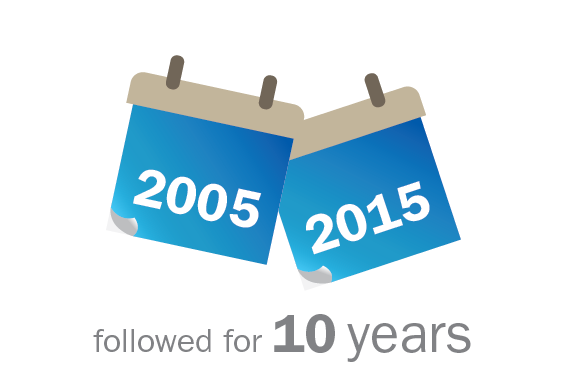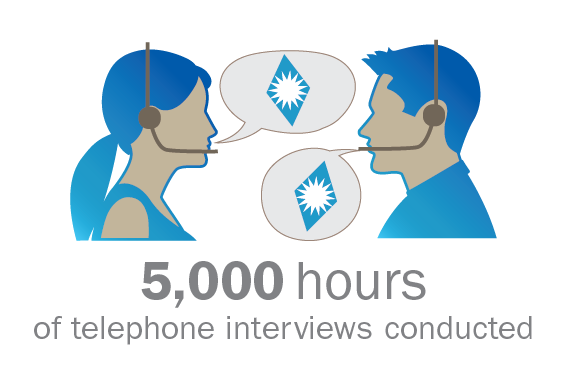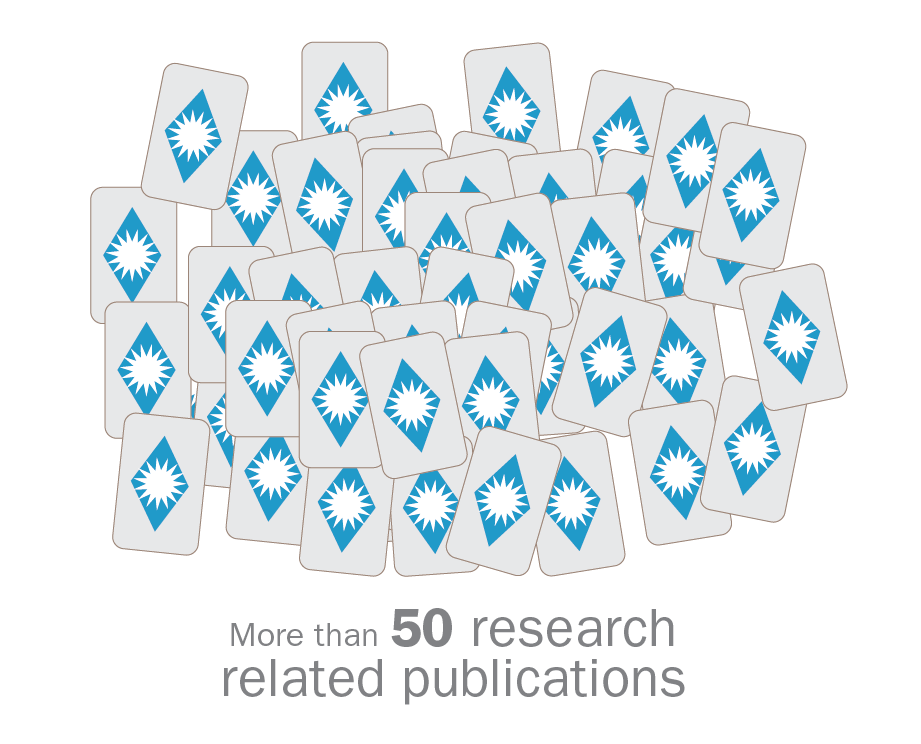Diamond
Thank you to all of the people who took part in diamond - the Diagnosis, Management and Outcomes of Depression in Primary Care Longitudinal Study (diamond) (2005-2016). diamond aimed to better understand how general practice and other health services can best support people experiencing depression, stress or worries in the community.
We sought to explore the factors that may help people to lead healthy and rewarding lives and the ingredients for best practice mental health care. Our team of researc hers at The University of Melbourne established this primary care-based study and invited patients from across 30 general practice clinics in Victoria to participate. The diamond Cohort Study has since become a unique resource that documents many aspects of the decade-long health and well-being stories of nearly 800 Victorian women and men.
hers at The University of Melbourne established this primary care-based study and invited patients from across 30 general practice clinics in Victoria to participate. The diamond Cohort Study has since become a unique resource that documents many aspects of the decade-long health and well-being stories of nearly 800 Victorian women and men.
Information provided over the years continues to lead to important advancements in understanding people’s experience with depression, stress and worries. To find out more please contact us via email diamond-study@unimelb.edu.au
Need Help?
If you live in Australia there are a number of support resources available.
- See Available Resources
Resources
Name Contact Number Your GP/family doctor Beyondblue 1300 22 4636 National sexual assault, domestic violence counselling service 1800 RESPECT/ 1800 737 732 Drug & Alcohol Counselling & Info 1800 888 236 Gambling Helpline 1800 858 858 Lifeline 13 11 14 Relationships Australia 1300 364 277 SANE Helpline 1800 187 263 Mensline Australia 1300 789 978 Suicide Call Back Service 1800 688 009 Suicide Line (Victoria) 1300 651 251 Women’s Domestic Violence Crisis Service (Victoria) 1800 015 188

WHAT ARE LIVING LABS?
Living labs are just that--they are places of the everyday and live collaboration, where we put people at the heart of science and research. Living Labs bring people with technological, industry, policy and research skills together with people who have lived-experience of mental ill-health and/or bring carer, family and kinship group experiences. We operate an end to end research design to translation model that was established and has evolved since 2017. The model is shown here below.

Working together, Co-Design Living Labs offer the potential for private-public partnerships to co-create new technologies, solutions and co-design research priorities, projects and co-research models.
GET INVOLVED!
If you are interested in being involved in the Co-Design Living Labs network and you've been in a mental health research related project at any of the ALIVE National Centre university partners, please get in touch with us to find out more on the next steps.
You can read about the journey for the Co-Design Living Labs establishment and its evolution to embed the philosophy of practice, Togetherness by Design, here: https://go.unimelb.edu.au/999s
Contact us at any time to register your interest in taking part in a Living Lab.
CONTACT US
The Co-Design Living Labs are managed by researchers from The ALIVE National Centre for Mental Health Research Translation and co-leads from the Co-Design Network.

Above: Living Labs Collaborators Hub and co-researchers - our Collaborator's Hub (co-design members) drive ideas generation & engagement with the larger labs group.
To find out more or to register your interest, please contact:
Ms Roxanne Kritharidis, Living Labs Coordinator
T: 1800 721 513
E: alive-codesign@unimelb.edu.au
News
Video series on Diversity and Inclusion Within Co-Design
See the most recent video on Trust and Relationships here with the co-design of a board game to build relationships for co-designing together: https://go.unimelb.edu.au/nb4e
Co-Design Living Labs model now published
Our Co-Design Living Labs model has now been published in the academic journal Frontiers in Digital Public Health! You can read more about the paper here: https://alivenetwork.com.au/our-networks/co-design-living-labs-network/
Need Help?
If you live in Australia there are a number of support resources available.
- See Available Resources
Resources
Name Contact Number Your GP/family doctor Beyondblue 1300 22 4636 National sexual assault, domestic violence counselling service 1800 RESPECT/ 1800 737 732 Drug & Alcohol Counselling & Info 1800 888 236 Gambling Helpline 1800 858 858 Lifeline 13 11 14 Relationships Australia 1300 364 277 SANE Helpline 1800 187 263 Mensline Australia 1300 789 978 Suicide Call Back Service 1800 688 009 Suicide Line (Victoria) 1300 651 251 Women’s Domestic Violence Crisis Service (Victoria) 1800 015 188
Thank you
The tenth year of data collection has been completed. You can find the final ten year review brief report below along with our ten years of study newsletters.
The research team would like to sincerely thank you for your participation in the study. The time and effort you committed to completing the postal surveys and telephone interviews is appreciated and your information has been invaluable to the research and its findings.
Data you provided over the years continues to lead to important advancements in understanding people’s experience with depression, stress and worries and the re-design of the Australian mental health primary care system. We encourage you to stay in contact via the diamond email address diamond-study@unimelb.edu.au. You can also get involved in Living Labs to contribute to future research development, policy and practice improvements. More information about Living Labs and what they are can be found here.
10 YEAR REVIEW BRIEF REPORT
Newsletters
Resources
| Name | Contact Number |
|---|---|
| Your GP/family doctor | |
| Beyondblue | 1300 22 4636 |
| National sexual assault, domestic violence counselling service | 1800 RESPECT/ 1800 737 732 |
| Drug & Alcohol Counselling & Info | 1800 888 236 |
| Gambling Helpline | 1800 858 858 |
| Lifeline | 13 11 14 |
| Relationships Australia | 1300 364 277 |
| SANE Helpline | 1800 187 263 |
| Mensline Australia | 1300 789 978 |
| Suicide Call Back Service | 1800 688 009 |
| Suicide Line (Victoria) | 1300 651 251 |
| Women’s Domestic Violence Crisis Service (Victoria) | 1800 015 188 |
-
Research Papers & Presentations
Topics Covered in Key Publications: primary care population (the multi-factorial nature of depression), risk factors for depression (chronic illness, social relationships), personalised treatment (recovery and depression, the use of written plans for recovery, resilience, lay accounts, social relationships, gene-environment interactions), usual care (website use, antidepressant use, treatment allocation), risk appropriate treatments (clinical predication tool, tailored care randomised controlled trial), monitoring (general practitioner continuity, the need to monitor depression care), systems re-design.
Read more -
Best Practice Model of Depression Care
Findings from diamond researchers about the key ingredients of a best practice model for depression care and the principles to embed this in the primary care system.
Read more -
Findings from diamond participants
Data from diamond surveys and computer assisted telephone interviews--strategies that people reported help for depression, stress and worries, and service use.
View


